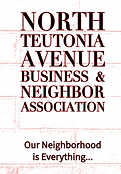OPEN: Mini-Grants for Capacity-Building & Composting
- Oct 7, 2024
- 2 min read
The FEED MKE Pilot Project
With funding through a USDA Composting and Food Waste Reduction Cooperative Agreement, ECO has launched the FEED MKE Pilot Project.
The Goal is to address the interconnected issues of food insecurity, waste reduction, landfill diversion, and climate change.
The 2-year project includes:
Outreach on how food waste impacts climate change,
Funding through mini-grants to support capacity-building for community-based organizations and community composting sites,
Build relationships between gleaners and food pantries, food kitchens, emergency food banks, restaurants, community-based organizations, faith-based organizations, and neighborhood associations, and
Incentivize food waste reduction practices.
The project comes from the Milwaukee Climate and Equity Plan Waste Reduction and Sustainable Consumption chapter- a focus on feeding hungry people by redistributing edible, gleaned leftovers that would otherwise be thrown away.
The key outcomes are feeding residents; compost food waste away from landfills, and employment opportunities. October workshops are taking place at various locations.
Apply by November 22. Awards will be announced in December.
Food Recovery: Grants of $5,000-$30,000 for 4-8 organizations to support food recovery capacity-building through partnerships with local food-based businesses, food banks, and community-based organizations.
Composting: Grants of $5,000-$20,000 for 3-5 organizations for on-site composting supplies or to institute subscription-based composting services at community locations.
The FEED MKE Coalition
The Food Excess, Equitable Distribution Coalition (FEED MKE) grew out of the 2019 City-County Task Force on Climate and Economic Equity appointed by the Milwaukee Common Council to address issues of climate change and racial equity. The Task Force and Work Groups convened regularly, engaged in research, and helped deliver recommendations for what was to become the Climate and Equity Plan in 2023. The 80+ volunteer contributors were a microcosm of Milwaukee-representing residents, community groups, academia, business leaders, faith-based institutions, and environmental justice advocates.
Volunteers were organized into specialized Work Groups and donated their time and talents in developing comprehensive strategies to address different components of the city-wide plan. One of the Work Groups that emerged with viable solutions was the Waste and Sustainable Consumption Work Group, which brainstormed strategies to help feed people in their communities and prevent food and other methane-causing waste from entering landfills. The Work Group played a prominent role in helping to create the Milwaukee Climate and Equity Plan and the FEED MKE Coalition.
The FEED MKE Coalition is a conceptual public-private partnership whose primary mission is to reduce food waste sent to landfills and feed hungry residents. The coalition focuses on three program areas: Education/Outreach, Operations, and Policy/Advocacy. The FEED MKE Coalition is now a partner of the City of Milwaukee’s Environmental Collaboration Office (ECO) and will help with the implementation of the initiatives and activities listed in the Milwaukee Climate and Equity Plan.
.png)



Comments